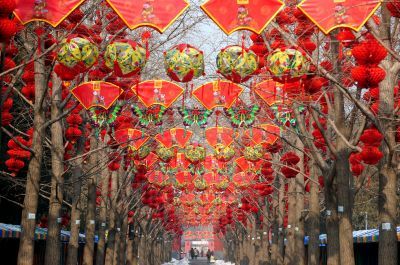China welcomes new year – and new traditions

China's Spring Festival is a tradition that dates back thousands of years but it has taken a very modern twist in 2010 as technology - and simple economics - play their part.
While ushering in the Chinese New Year (and this year, the Year of the Tiger), the festival comes full of gatherings and celebrations that for the most part sees people join with family and friends for the duration.
This year, however, things have been a little different. Although hundreds of millions of Chinese have been able to head home for the holidays many too have not, fearing they might lose their jobs as the world economy still makes its way toward recovery.
But help has been at hand. These days family, it seems, is just a handset away.
Reports in the Chinese media this week claim that over the Chinese New Year period of February 13-16, hundreds of millions of text messages were sent across China as people tried to keep in touch with their loved ones - and to send them wishes of good luck for the year ahead.
One of China's main social networking sites - kaixin001.com - reported more than 100 million messages on February 13 alone.
According to one academic, its not just that some people have decided not to travel over this Spring Festival, the very nature of Chinese society has changed.
"[Young people] have been influenced by the internet and have their will to communicate face-to-face weakened,'' Professor Zhai Li, from the Northwest Agriculture and Forestry University in Yangling, Shaanxi province, told the "China Daily'' newspaper.
And the internet has certainly had an effect on the traditions of the month-long Spring Festival too.
China's web-savvy younger generation - and let's not forget there are an estimated 384 million internet users across the nation - have this year been turning away from the traditional gift fairs and markets that spring up in every city, town and village. And they have been buying their festival gifts online.
China's biggest online retail site - taobao.com - has reported more than one billion yuan (108 million euros) in sales of Spring Festival gift items over the past month, up from the 280 million yuan (30 million euros) recorded in 2009.
MS
Join our commenting forum
Join thought-provoking conversations, follow other Independent readers and see their replies
Comments
Bookmark popover
Removed from bookmarks